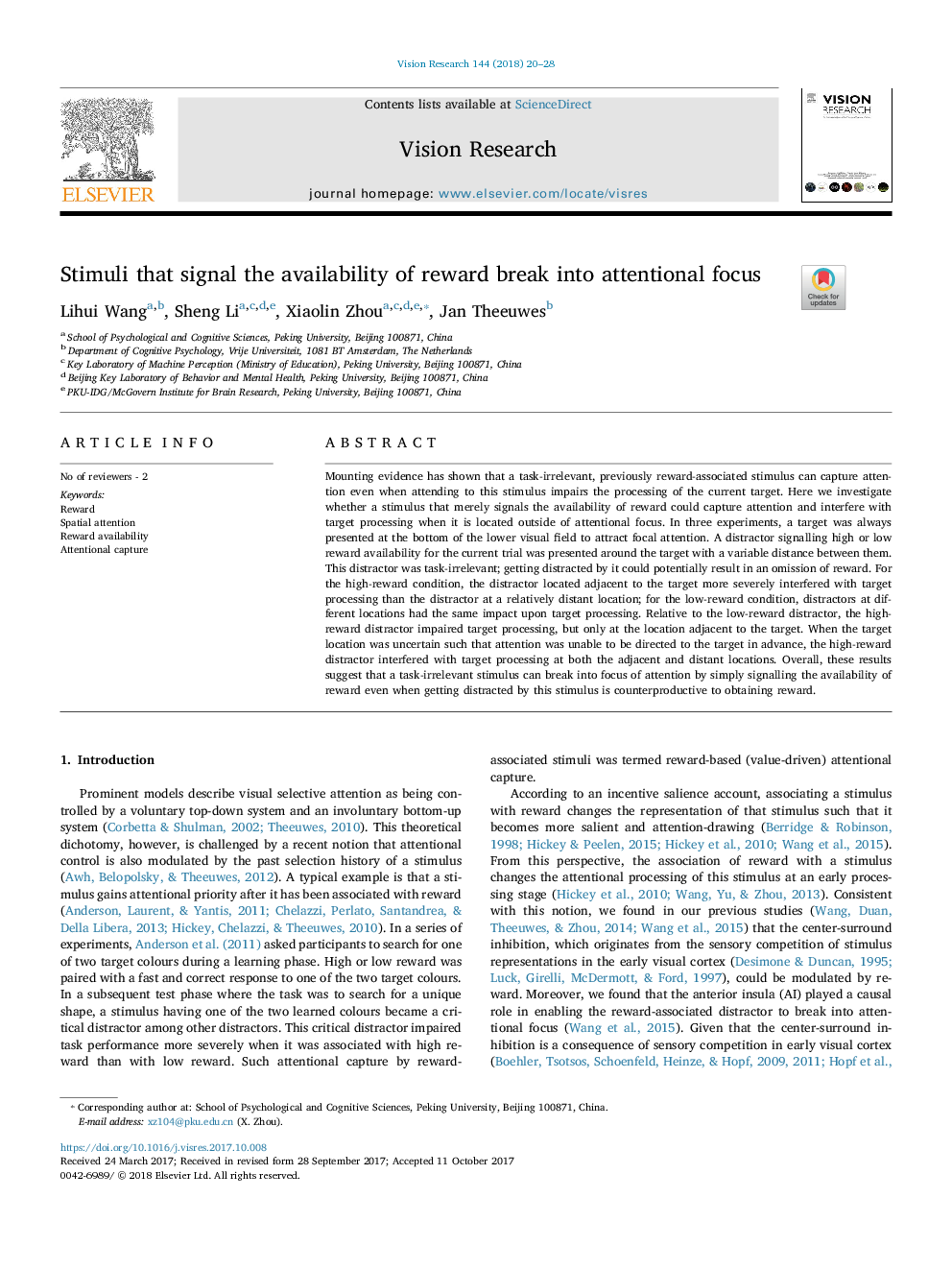ترجمه فارسی عنوان مقاله
محرک هایی که در دسترس بودن پاداش هستند به تمرکز توجه دارند
عنوان انگلیسی
Stimuli that signal the availability of reward break into attentional focus
| کد مقاله | سال انتشار | تعداد صفحات مقاله انگلیسی |
|---|---|---|
| 112631 | 2018 | 9 صفحه PDF |
منبع

Publisher : Elsevier - Science Direct (الزویر - ساینس دایرکت)
Journal : Vision Research, Volume 144, March 2018, Pages 20-28
ترجمه کلمات کلیدی
جایزه، توجه فضایی، در دسترس بودن پاداش، ضبط ذهنی،
کلمات کلیدی انگلیسی
Reward; Spatial attention; Reward availability; Attentional capture;
ترجمه چکیده
شواهد نصب نشان داده است که یک محرک ناشی از وظیفه، قبلا پاداش میتواند توجه را حتی هنگام حضور در این محرکها، به پردازش هدف فعلی منجر شود. در اینجا ما بررسی می کنیم که آیا یک محرک که صرفا سیگنال در دسترس بودن پاداش را می تواند توجه و دخالت در پردازش هدف در زمانی که آن را خارج از تمرکز تمرکز است. در سه آزمایش، یک هدف همیشه در پایین زمینه بصری پایین برای جلب توجه کانونی ارائه شد. در حقیقت، هدف از انجام این آزمایش، نشان دادن دسترسی بالا یا پایین پاداش برای محدوده هدف با فاصله متغیر بین آنها بود. این حواس پرتی کار بی اهمیت بود؛ این امر می تواند منجر به نادیده گرفتن پاداش شود. برای شرایط بالا پاداش، حواس پرتی که در مجاورت هدف قرار گرفته است، به شدت با پردازش هدف تداخل می کند، نسبت به حواس پرتی در یک موقعیت نسبتا دور. برای شرایط کم پاداش، آشفتگی در مکان های مختلف تاثیر مشابهی بر پردازش هدف داشت. نسبت به منحرف کننده پاداش کم، اختلال بالا پاداش دچار نقص در پردازش هدف، اما تنها در محل مجاور هدف است. زمانی که محل هدف نامعلوم بود به طوری که توجه به توانایی هدایت به هدف پیش از آن نداشته باشد، منحرف کننده پاداش بالا در پردازش هدف در هر دو مکان مجاور و دور، دخالت می کند. به طور کلی، این نتایج نشان می دهد که یک محرک کاری غیرمستقیم می تواند به تمرکز توجه تبدیل شود و به سادگی نشان دهد که در دسترس بودن پاداش حتی زمانی که از این محرک ها پریشان می شود، برای کسب پاداش غیرممکن است.

